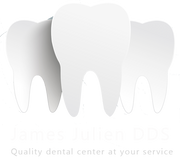
Taking care of your teeth is extremely important because it helps avoid diseases and other oral health problems. Gingivitis is a fairly common condition that affects many people. Implementing simple daily routines will keep it away or at bay so it doesn't grow into a bigger problem. Regular dentist visits are important for managing and avoiding this condition, and these frequently asked questions will explain everything about gingivitis, including how to treat and prevent it.
A Guide to Gingivitis
What is gingivitis?
Gingivitis is a condition that stems from gum disease. It happens when there is a buildup of plaque on the teeth, which causes the gums to become inflamed. This adhesive film creates toxins that irritate the tissues surrounding your teeth, making gums puffy, red, or bloody. Signs of gingivitis include tender tissue, bad breath, blood that appears after brushing or flossing, and receding gums.
What causes it?

Plaque is the main cause of gingivitis, but there are other elements that can lead to this condition. Bad oral hygiene, such as not brushing and flossing regularly, leaves teeth exposed to plaque buildup and can create harmful bacteria that affect the gums. Smoking, poor nutrition, diseases like diabetes, and stress can all contribute to gingivitis. Some medications can also cause it, so it is important to speak to your dentist whenever starting new routines or if you notice a change in your gum tissue.
How is it treated?
There are several ways to help treat gingivitis. Purchasing an anti-gingivitis toothpaste will help get rid of plaque buildup and boost your overall gum health. You can also follow up by brushing with an anti-gingivitis mouthwash to kill any bacteria the toothpaste didn't get. Get a new toothbrush every 3 months, and floss every single day. Make sure to brush the teeth and gums for a minimum of two minutes, paying attention to the gumline and hard-to-reach spaces in the mouth.
How can I prevent it?
On top of implementing good oral hygiene practices and using anti-gingivitis toothpaste, you can switch to an electric toothbrush to help prevent it. These brushes massage the gumline and help dissipate plaque, leaving teeth free of toxins and detrimental film. Schedule dentist visits every six months for professional cleaning. This way, they can keep an eye on any changes or problems you notice.
If you have noticed changes in your oral health, turn to the professionals at James Julien, DDS. Located in Kenai, AK, this knowledgeable team can help with everything from implants and veneers to teeth whitening and regular cleanings. They stay up to date with current techniques and products to ensure your mouth gets the very best treatment and stays in good health between visits. For more information, call (907) 283-4857 or visit their website.
About the Business
(9 reviews)
Have a question? Ask the experts!
Send your question

